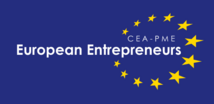From 8th to 11th of June 2017, Stefan Daubner of Busekist Winter and Partner welcomed his colleagues to his home town Düsseldorf. This year’s theme “Düsseldorf Digital Development – Improve your skills in 3Ds” targeted a holistic approach: firstly, providing information as well as space for discussion on digital developments and the legal profession today. Secondly, presenting today´s varicoloured Düsseldorf. That way participants got to know each other and the city at its best!
We talked to the organiser Stefan Daubner, who outlined the congress for us.
Today, Düsseldorf is an international business centre that offers a high standard of living. You can enjoy the beautiful Altstadt, unique harbour houses, or far-out fashion trade fairs. Because Düsseldorf has successfully managed to adapt itself to new circumstances it was the perfect venue to prepare for fast changing times.
During the congress, participants learned about current developments in digital technologies and were able to reflect on the necessary skills for successful digital client communication. “We had a pleasant working atmosphere. What is more: people were enjoying themselves during the leisure activities, “ Stefan Daubner tells us.
“During our sessions, we discussed today’s and future challenges of the digital revolution,” he explains. Talks on “Strategy and How to Position Yourself” amplified the agenda. This lecture built the base for discussions among participants. Especially David Emmerich’s presentation on “Impact of Artificial Intelligence on Intellectual Property Law” triggered off a highly vivid discussion. “It was an impulsive discussion, that took nearly an hour”, Stefan Daubner remarks.
Certainly, innovation in the field of digital technologies will change the legal profession. “This will happen sooner than later,” Stefan Daubner emphasises. He continues with an example, “After investing in the latest software, a Japanese insurance company dismissed about one-third of their employees, that handled damage claims. As of now, only complex cases are managed by actual employees. In the long run, money is saved, profits are made since the software is more economic than man power.”
At large, “everybody agreed that the way lawyers work will change completely in the coming years. Nowadays, a young lawyer might have to start completely new once or twice in the course of his or her career because of technological change,” he says.
However, not only the implications for everyday work but also moral considerations will be of significance. Stefan Daubner explicates, “in Germany, submission to court can be subject to author rights. In the case of scientific intelligence, the determination of ownership is complicated: is it the lawyer, the machine, or the software? We have to think about this now because it will be the reality in the near future.”
Beyond all serious matters and business, the congress’s vital purpose was: to get connected, to share experience, and to enjoy oneself. Overall, the agenda included visits to a fantastic range of international restaurants: from tapas, to a local beer brewery, a champagne reception, and a Korean lunch. “The Korean restaurant owners really enjoyed hosting us, just as the restaurant staff was keen on presenting the Korean cuisine,” Stefan Daubner relates. In addition to these culinary delights, a river cruise, as well as a costume ball in a middle-aged village enriched the meeting. Stefan, who wore a knight’s costume to the ball, concludes, “people enjoyed themselves and were surprised how colourful and multicultural Düsseldorf is!”


